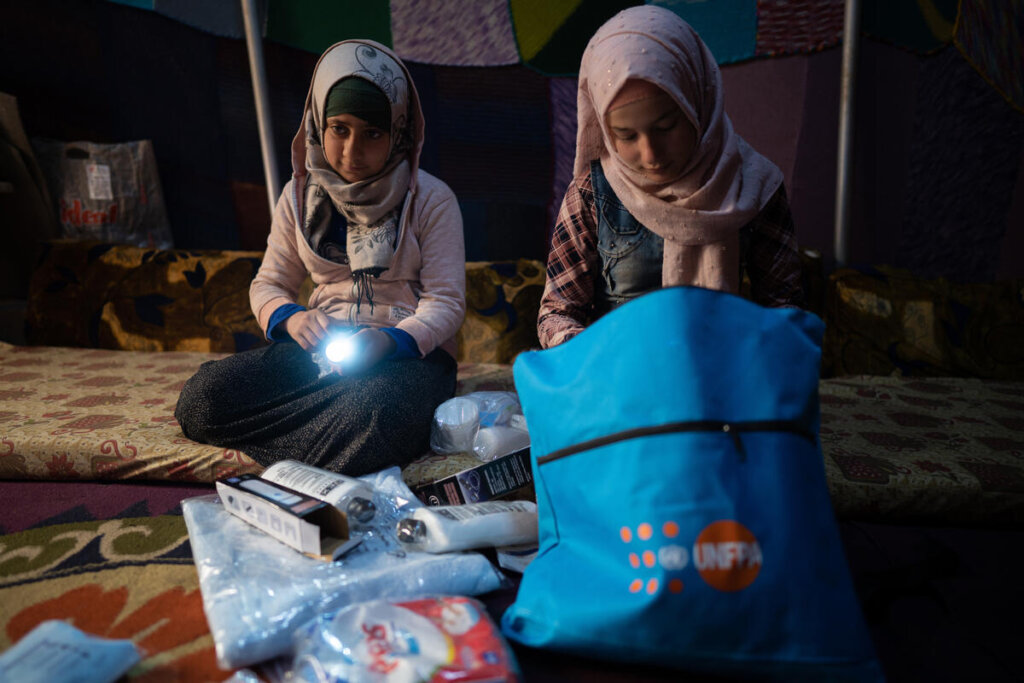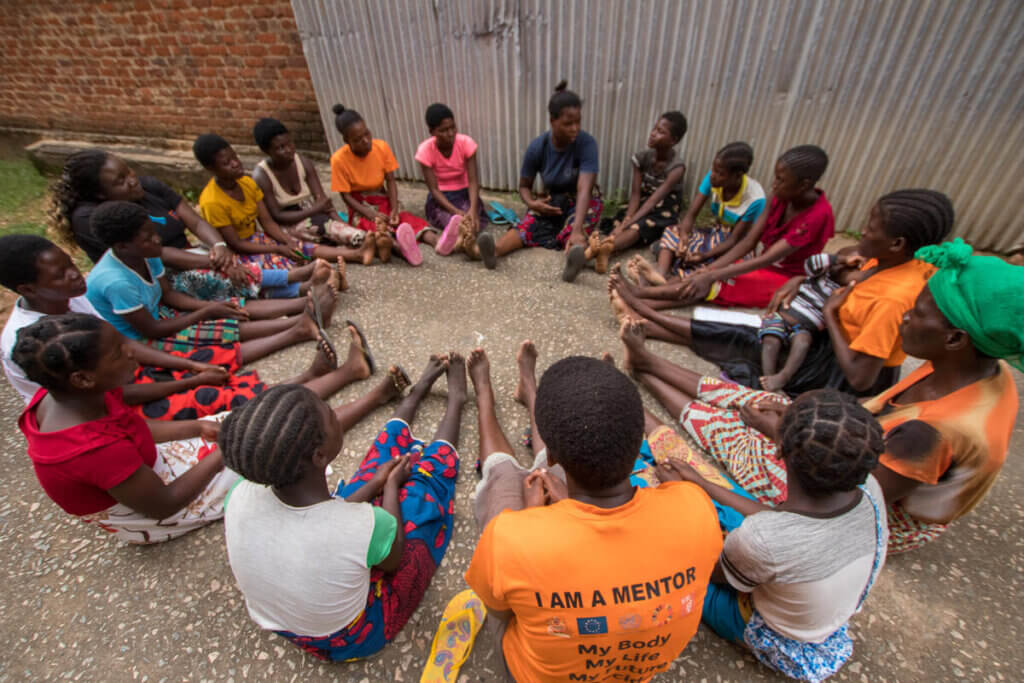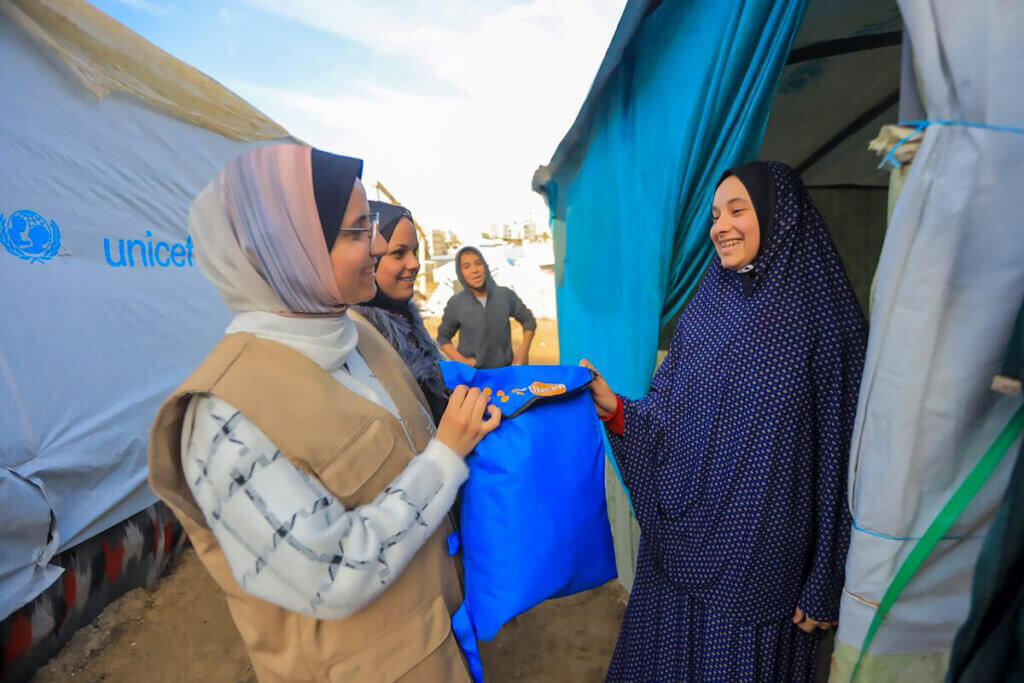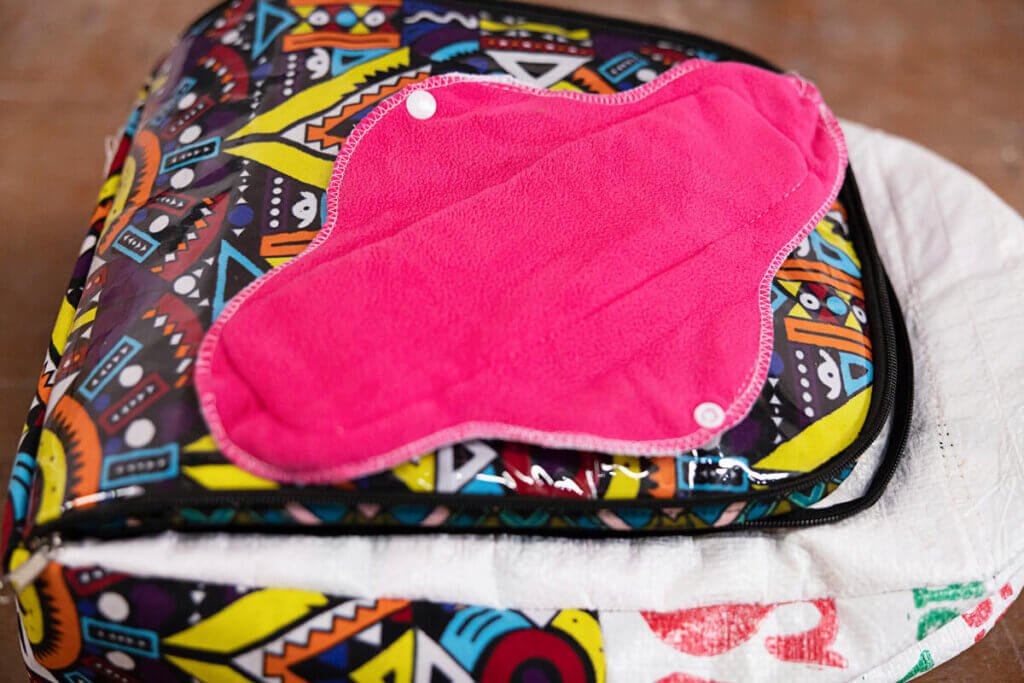The forgotten need: Period myths, period poverty, and managing periods in crisis

Every month, nearly 2 billion people menstruate – but alarmingly, millions of women and girls do not have the resources or support to manage their periods with dignity. The ability to care for oneself while menstruating is not only a health issue, but also a human rights issue.
When a girl cannot manage her periods, she is more likely to miss school or stop attending entirely – which has lifelong ramifications for her employment opportunities and financial security. Women who do not have the resources to manage their periods are also vulnerable to losing work and chronic infections.
This Menstrual Health Day, we’re looking at the root cause for period poverty and the many inequalities that women who are menstruating face.

Period myths and taboos
In many cultures, myths about menstruation are passed down from generation to generation. Beliefs that periods are dirty or dangerous force women and girls into isolation for fear that they will wilt crops or spoil food. In some communities, women and girls are required to live outside their homes, often in a shack or hut, while on their periods.
“I was afraid to tell my mother, thinking it was a crime to menstruate,” said 14-year-old Suzan from South Sudan. When she was 11, she got her first period and, like her older sister before her, was told to leave home until her cycle passed. “I was afraid to die because of the flow, but isolation was a normal practice,” she said.
Forcing young girls out of the home for days at a time greatly increases their chances of facing sexual violence while alone. In other communities, people who are menstruating are instructed not to touch or clean their genitals so they can’t “contaminate” the family’s water supply. This causes women and girls to trek far into the woods to care for themselves, increasing their chance for infection.
In some cultures, the first period of a girl is celebrated instead of shamed – but it is often celebrated as the transition into womanhood. Beliefs that girls, who are as young as 7 or 8, are ready for marriage and childbearing can lead to girls being forced into child marriage and violence.
When Gebeyanesh was 14, her parents hosted a celebration to commemorate her first period. Still on the cusp of girlhood, several men expressed their interest in marrying her. If not for Gebeyanesh’s mother refusing all offers, she would likely have been married soon after her first period.

Managing periods in crises
Women and girls do not stop getting their periods when disaster strikes. In Gaza, where millions are struggling to find enough food to eat or enough water to drink, women and girls’ menstrual health needs have been all but forgotten.
Bakiza, who has been displaced in Gaza for months, shared this with us: “I have a young daughter. She’s 16 years old. I would cut a piece of cloth to use as a sanitary napkin for our periods…. She told me ‘Mama, we can’t do this!’ but what could I do?”
Aisha, also displaced in Gaza, told us: “I only have one pair of underwear, and I have to wash them with dirty water and then use them again.”
Menstrual products are nearly nonexistent in Gaza – and even if they can be found, they are far too expensive for many families who must prioritize food. For the 690,000 women and girls who are of menstruation age in Gaza, this crisis is opening them up to infection at a moment when their immune systems are also critically low.
We’re on the ground in Gaza handing out UNFPA Dignity Kits, which includes items such as soap and both reusable and single-use menstrual products, to as many women and girls as we can reach. Already, we have distributed over 500,000 pads and thousands of Dignity Kits to women and girls in Gaza.

Working to break the cycle of period poverty
“I dropped out of school the first time I saw my period. As I didn’t have sanitary pads, I didn’t feel confident going out. I didn’t want to feel embarrassed.” Samrawit from Ethiopia started her period when she was 12. Tragically, her story is not uncommon.
On average, girls in school who cannot adequately manage their periods miss 4 or 5 days of school each month, equaling 40 to 50 days a school year. “When a girl starts to menstruate, that’s when the problems usually start,” Ndeye, UNFPA’s representative in Gambia, explained to us.
Addressing the gap in menstrual products can alter the course of a girl’s life – and thanks to our supporters, we’re able to do just that. In Gambia, we’ve launched an initiative to produce pads that will be made free in schools so girls can continue their education. We also connect women with the factories where the pads are produced, so they can gain an income.
In Suzan’s camp in South Sudan, we are distributing pads and debunking menstruation myths. In emergency settings like Gaza, we are distributing Dignity Kits every day to women and girls who have gone without for too long.
“I am 14 years old, and this is the first time anyone has remembered me for anything, especially as a girl,” one Dignity Kit recipient in Rafah shared with us. This Menstrual Health Day, we wanted to thank you for helping to power our work to support women and girls around the globe, no matter what.